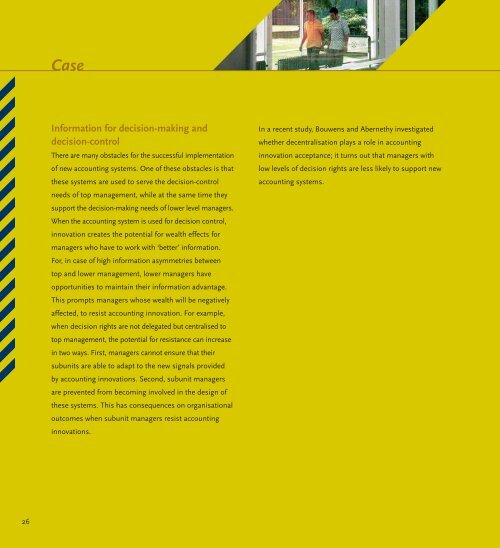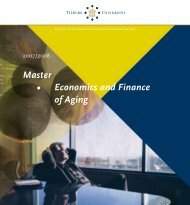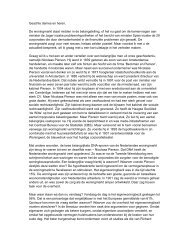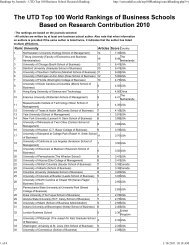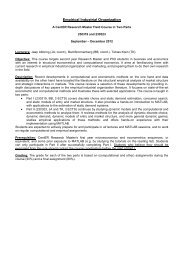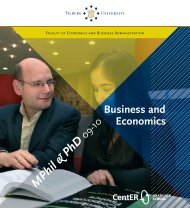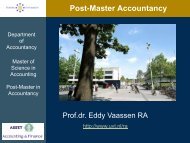Accountancy - Tilburg University, The Netherlands
Accountancy - Tilburg University, The Netherlands
Accountancy - Tilburg University, The Netherlands
Create successful ePaper yourself
Turn your PDF publications into a flip-book with our unique Google optimized e-Paper software.
Case<br />
Information for decision-making and<br />
decision-control<br />
<strong>The</strong>re are many obstacles for the successful implementation<br />
of new accounting systems. One of these obstacles is that<br />
these systems are used to serve the decision-control<br />
needs of top management, while at the same time they<br />
support the decision-making needs of lower level managers.<br />
When the accounting system is used for decision control,<br />
innovation creates the potential for wealth effects for<br />
managers who have to work with ‘better’ information.<br />
For, in case of high information asymmetries between<br />
top and lower management, lower managers have<br />
opportunities to maintain their information advantage.<br />
This prompts managers whose wealth will be negatively<br />
affected, to resist accounting innovation. For example,<br />
when decision rights are not delegated but centralised to<br />
top management, the potential for resistance can increase<br />
in two ways. First, managers cannot ensure that their<br />
subunits are able to adapt to the new signals provided<br />
by accounting innovations. Second, subunit managers<br />
are prevented from becoming involved in the design of<br />
these systems. This has consequences on organisational<br />
outcomes when subunit managers resist accounting<br />
innovations.<br />
In a recent study, Bouwens and Abernethy investigated<br />
whether decentralisation plays a role in accounting<br />
innovation acceptance; it turns out that managers with<br />
low levels of decision rights are less likely to support new<br />
accounting systems.<br />
Programme<br />
<strong>The</strong> programme consists of 60 Credits (ECTS), equivalent<br />
to 1680 hours of study, offered over two semesters.<br />
<strong>The</strong> first semester starts in September, with exams in<br />
December and January. <strong>The</strong> second semester runs from<br />
February to June, but is divided in two. From February to<br />
April, you will take two courses. From April onwards, you<br />
will be able to focus on your Master’s <strong>The</strong>sis.<br />
ECTS<br />
Advanced International Financial Accounting 6<br />
Advanced Management Accounting 6<br />
International Financial Reporting and Analysis 6<br />
Management Control 6<br />
1 elective: 6<br />
- Investment Analysis<br />
- Corporate Valuation<br />
- Strategic Management<br />
Accounting <strong>The</strong>ory 6<br />
1 elective: 6<br />
- Financial Analysis and Investor Behaviour<br />
- Treasury Management<br />
Master’s <strong>The</strong>sis 18<br />
This programme is provisional. For more information<br />
about the programme and the courses, please check<br />
the electronic study guide on our web pages at<br />
www.tilburguniversity.nl/studyguide<br />
26<br />
27


